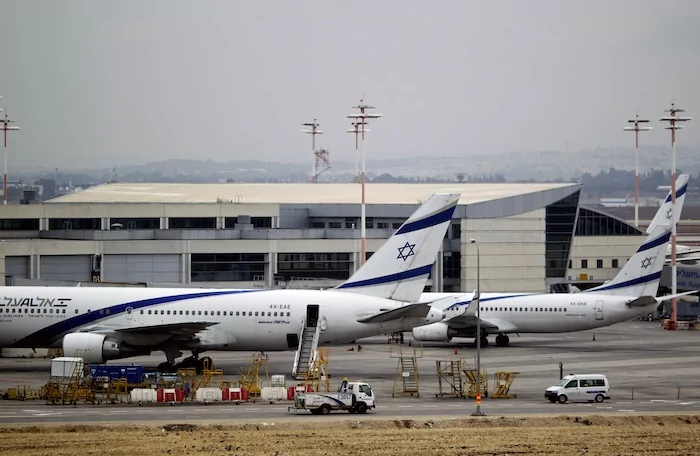

News of the ceasefire in Israel’s war with Hamas has led to hundreds of Jewish Americans booking flights overseas to visit the country.
Before the war, tourism was a major sector of the country’s economy, but the tourism sector nosedived in 2024 amid the war. Those who have traveled back have emphasized the country’s “resilience.”
“Everywhere you turn in Israel, you are reminded of Oct. 7, but you’re also living at the same time,” Melinda Strauss, a popular TikTok creator whose account is dedicated to informing people about Judaism, told the Washington Examiner in an interview.
WHAT IS DOGE? WHAT TO KNOW ABOUT THE DEPARTMENT OF GOVERNMENT EFFICIENCY
Before the war, tourism accounted for 3.8% of Israeli employment and 2.6% of Israel’s GDP.
According to the Israel Central Bureau of Statistics, the number of tourists visiting the country plummeted in the months after the war started. In September 2023, the country saw 300,000 tourists, and by November, that number had decreased by 90%.
Trips on the Birthright program, which offers free trips to Israel for young American Jews, have drastically decreased as well. In 2024, the program saw an 80% decrease in people going on these trips.
“Tour guides are suffering. A lot of them just have not had work, and 16 months later, they’re still suffering,” Strauss said. “The summer programs with all the teenagers — it’s just not what it was before the war.”
She has traveled to Israel throughout the war, going multiple times last year, but she most recently traveled to Israel after the ceasefire was announced. Strauss said she noticed more people on her most recent trip than she had previously.
Strauss stressed that traveling to Israel and supporting the economy is one of the best actions to take to support the country.
“Have fun,” Strauss said. “By having fun, you are helping Israel.”
TRUMP NATIONAL SECURITY PICKS: LOYALTY, AMERICA FIRST, AND PRO-ISRAEL
One travel sector that has remained strong in Israel throughout the war, however, is volunteering trips.
“The only type of trip that is up is the type of trip that I participate on, which is a volunteering trip, where you come here, and you help out, maybe you know small businesses, or you meet with people affected by the war in hospitals, or displaced Holocaust survivors,” Joshua Binder, a Jewish American who traveled to Israel after the ceasefire, told the Washington Examiner.
This month, he traveled with a group from his synagogue in Pittsburgh, Pennsylvania, for a trip focused on volunteering and touring the country.
Demand to go to Israel from the United States has only risen in the weeks since the ceasefire was enacted. Direct flights to the Jewish state sold out as Israel’s main carrier, El Al, only flies regularly scheduled flights to and from the U.S. at this time.
As for U.S. carriers, United Airlines said it would resume flights from Newark, New Jersey, to Tel Aviv in March and add a second daily route later that month. American Airlines, the world’s largest airline, will not resume flights until September 2025. Delta Air Lines was flying to Tel Aviv mostly throughout the war but suspended its routes until March 31. Delta said it would resume daily flights between New York and Tel Aviv on April 1.
Until then, flights from the U.S. to Israel remain expensive. A low-cost Israeli carrier, Arkia, which Binder said Israelis call “the Spirit Airlines of Israel,” launched its inaugural flight from New York to Tel Aviv recently.
Still, the pain of Oct. 7 remains prevalent in the country. Weekly rallies are held in Hostages Square in Tel Aviv, and posters for missing hostages are up in Ben Gurion International Airport.
CLICK HERE TO READ MORE FROM THE WASHINGTON EXAMINER
“Everybody knows somebody, and it’s a very tight-knit country. It’s about the size of New Jersey geographically. It’s 10 million people overall, which might sound like a lot but really is not a lot. So, everybody knows somebody who was either injured or unfortunately was taken hostage or killed, so it feels very personal for people,” Binder said.
“This resilient energy where there’s sadness everywhere, and there’s trauma everywhere,” Strauss said. “And yet, in the exact same moments you’re feeling those, you’re also seeing smiling faces everywhere and people living their lives.”







